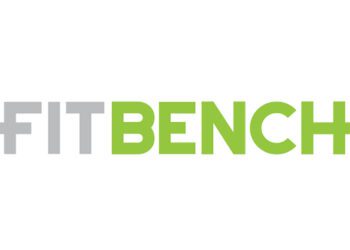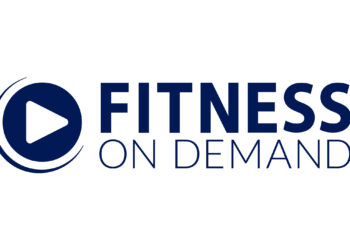Why Tony Ueber, the CEO of 24 Hour Fitness, can relate to the recent challenges the Cleveland Browns faced in their first playoff win in 25 years.
If last year taught us anything, it’s that the best leaders and teams take any lemons they’re given, and turn them into lemonade.
Just take the Cleveland Browns’ recent 48-37 win over the Pittsburgh Steelers on Sunday as an example. The Browns had a lot going against them — such as having to play without head coach Kevin Stefanski, two assistant coaches and two players — due to COVID-19. In addition, the team’s facilities were closed to prevent the spread of the virus, forcing them to hold meetings via Zoom and limit in-person practice time.
Despite these challenges, the Cleveland Browns overcame in their first playoff victory in 25 years.
For Tony Ueber, the CEO of 24 Hour Fitness and an avid Browns fan, the challenges his favorite NFL team faced are familiar — likening them to the many his organization has faced since the start of the coronavirus pandemic last year.
In March 2020, as clubs across the U.S. were forced to close their doors as a part of mandatory, nationwide shutdowns, 24 Hour Fitness subsequently furloughed around 19,000 staff. And with the vast majority of its gyms located in California, it has reopened and reclosed gyms multiple times.
In June 2020, the repercussions of the COVID-19 pandemic came to a head for 24 Hour Fitness, culminating in the announcement the organization had voluntarily filed for relief under Chapter 11 of the U.S. Bankruptcy Code, with plans to restructure.
Just like the Browns, Ueber says 24 Hour Fitness is taking the lemons of 2020 and turning them into lemonade. The brand exited Chapter 11 on December 31, 2020, and he believes they’re coming out of the process a much stronger company.
“We were able to fix a lot of things that were fundamental issues in the business, that would have taken us a lot longer to fix outside of the Chapter 11 process,” said Ueber. “I feel extremely good about where we are coming out.”

Through Chapter 11, 24 Hour Fitness shed around 150 locations it had identified a year prior as those it felt were impaired due to age, location, market conditions or other factors. In addition, Ueber explained they were able to make significant improvements in how the remaining 300 clubs are run operationally and execute key upgrades.
24 Hour Fitness was also able to divest much of the $1.4 billion in debt it had prior to filing for Chapter 11.
“Every quote from every CEO that’s in Chapter 11 says, ‘We’re going to emerge and be a stronger company,’ and then some of them find themselves right back there if they don’t fundamentally have a sound business model,” said Ueber. “We fundamentally operate in a space where there’s demand for fitness and for the services that we provide, so that’s good. And, I think the changes we’ve made throughout this year will pay big dividends for us. We didn’t just sit and try to survive. We worked really hard to make changes that would enable us to thrive going forward.”
Outside of Chapter 11, 24 Hour Fitness will operate with a leaner balance sheet and improved real estate portfolio, resulting in new investment opportunities.
“The amount of interest expense we were paying previously versus what we’re going to have to pay now will give us a significant amount of financial freedom to make the investments we need to make in innovation, and in just making sure our clubs are the best they can be for our members,” said Ueber. “We’re in a whole different financial situation than we were 12 months ago, and that’s going to give us a lot of flexibility to implement our innovation agenda.”
As an example, Ueber referenced the brand’s 24 Go app, which he said the team has worked tirelessly on to improve over the past 12 months. The app provides touch-free check-ins at indoor and outdoor locations, plus more than 1,000 free and on-demand workouts.
24 Hour Fitness also recently launched 24GO Plus, a premium digital subscription featuring customizable workouts and audio coaching, live-coached virtual group training sessions, and more. The premium subscription is free to 24 Hour Fitness members.
“That’s going to be our big challenge over the course of the next year, is to really bridge that online and offline environment for our members and give them a seamless experience, and be there for them however, whenever and wherever they want to workout,” said Ueber.
Although Ueber feels positive about the months ahead, he said the brand still has challenges to overcome, including getting its gyms in California and Oregon back open, and rebuilding its teams nationwide. Currently, it has 40 outdoor gyms open in Hawaii, Oregon and California — with up to 10 more slated for the coming weeks.
Like many gym operators, Ueber is also frustrated that many policymakers still lump health clubs in with hospitality and entertainment, versus viewing fitness as essential.
But through it all, Ueber said he’s proud of how his team at 24 Hour Fitness has navigated the many challenges of the past 12 months, with many doing so virtually.
“Look at just how well the Cleveland Browns did in being able to use Zoom and other technologies,” added Ueber. “They only had one in-person practice this week. The rest of it was all virtual, and I think our teams [can relate]. I’m super proud of how well the team has come together.”



Stay ahead in the fitness industry with exclusive updates!
Rachel Zabonick-Chonko is the editor-in-chief of Club Solutions Magazine. She can be reached at rachel@peakemedia.com.











